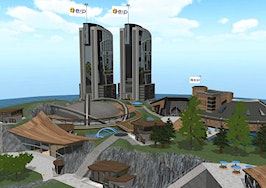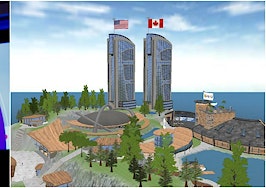In the early 2000s, Glenn Sanford was too successful to change the world.
At the time, Sanford — the founder and CEO of eXp Realty — was running multiple teams of agents across several different cities for Keller Williams, and the job kept him so busy he didn’t actually have the time to test the kinds of innovations he thought the industry might benefit from. It was a good job, but Sanford knew there was more he wanted to do.
Then the housing bubble popped.

Glenn Sanford of eXp Realty
“There was a whole bunch of stuff I wanted to change but couldn’t change,” he recalled. “And then 2008 happened and all of a sudden I got a chance.”
As the recession brought the worldwide economy to its knees, Sanford was closing offices but also thinking about how to build a better brokerage, he recalled while speaking Wednesday at Inman Connect.
“We said, ‘how do we build a business model that’s not dependent on bricks and mortar?'” Sanford said. “Because we couldn’t afford it. It was this sort of invention moment.”
Today, Sanford leads a real estate company that is perhaps most famous for using a Second Life-inspired virtual reality office system. Company staffers log in and use avatars to communicate with each other, and today eXp Realty is publicly-traded and in the past has been valued at more than $1 billion. As 2018 wrapped up, the company was also closing in on its goal of having 16,000 agents.
Sanford said his company’s virtual reality system now sets it apart from other businesses and saves massive amounts of money that might otherwise have been spent on facilities.
“We’re automatically saving 80 percent of our expenses and we’re able to leverage our team about 5x,” he noted.
It’s unclear what might have happened to eXp Realty if the housing bubble collapse hadn’t disrupted Sanford’s success over a decade ago, but his message Wednesday was clear: Some of his company’s most famous innovations arose out of the constraints he faced in comparatively harder times.
Kendall Butler of F.L.I. Properties in Georgia also used the recession to her advantage. F.L.I. Properties began operations in 2006, and quickly began expanding. But when the housing bubble sent prices plummeting, Butler seized the opportunity to grow even more, buying land and going back to school to get a master’s degree in development.
“We bought 4,500 acres during the downturn,” Butler said Wednesday while speaking alongside Sanford at Inman Connect. “Now we do new construction, single-family infrastructure. We’re actually creating the inventory, we’re creating the markets that we are in.”

Kendall Butler of F.L.I. Properties
Butler and Sanford run very different kinds of companies, but a unifying theme running through both of their comments Wednesday was that key parts of their businesses today were a response to conditions that are widely understood to have had negative impacts on the housing industry.
In the years since, both companies have also cultivated a culture of innovation. Butler said Wednesday that she is deploying internet-enabled iPads to her agents, for example, and is providing training so that technology can be used to capitalize on leads.
Sanford, who noted that he had a background in technology even before building eXp Realty, speculated about taking the virtual reality concept even further. He recalled how he now plays the web-based multiplayer game Fortnite with his daughter who lives in a different city, and mused that it could be a platform that enables connections with “younger people, millennials.”
“I think there is a large number of people who will work in this more engaged way,” he said of web-based platforms. “There’s a lot of money and there’s a lot of people who think this is the future of work. And we’re just doing it now.”









